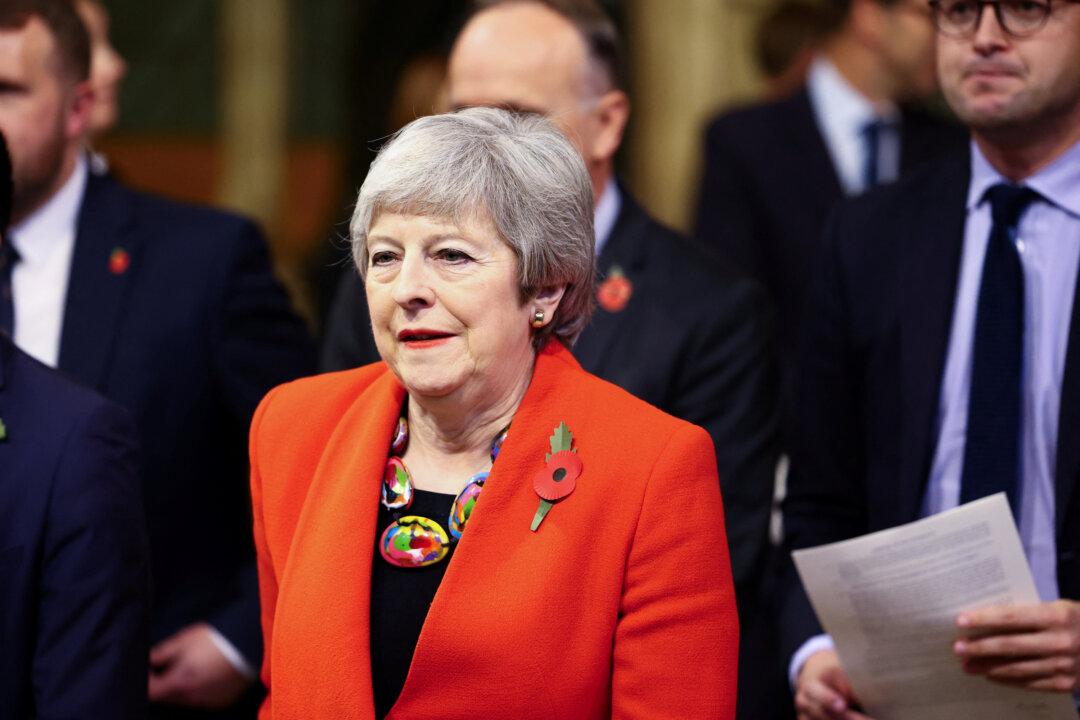Theresa May will stand down at the next general election after 27 years in Parliament, the former prime minister announced on Friday.
The MP for Maidenhead said she made the “difficult decision” in order to focus on her NGO work including as chair of the Global Commission on Modern Slavery and Human Trafficking.
“It has been an honour and a privilege to serve everyone in the Maidenhead constituency as the Member of Parliament for the last 27 years,” Mrs. May said in the statement.
“Being an MP is about service to one’s constituents and I have always done my best to ensure that I respond to the needs of local people and the local area.
“Since stepping down as prime minister I have enjoyed being a backbencher again and having more time to work for my constituents and champion causes close to my heart including most recently launching a Global Commission on Modern Slavery and Human Trafficking.”
The former prime minister said the causes have been taking “an increasing amount” of her time and she no longer feels able to represent local constituents in the way she believes they deserve.
“I have therefore taken the difficult decision to stand down at the next General Election,” she said, adding that she will “continue to work hard” for all her constituents until the general election, which is expected to happen in the second half this year.
Mrs. May also sought to quash the theory that there’s an exodus of Conservative MPs owing to a lack of confidence in the prime minister and his chances of winning the next general election.
“As I pass the baton on I will be working with my successor to secure a Conservative victory in Maidenhead. I remain committed to supporting Rishi Sunak and the government and believe that the Conservatives can win the election,” she said.
The MP thanked the voters who put her in office and said there’s “no greater privilege than being an MP.”
Turbulent Time as PM
She was first elected as MP for Maidenhead in 1997, and served as home secretary under David Cameron between 2010 and 2016 before succeeding him as prime minister.Her term in Downing Street lasted a turbulent three years and was dominated by wrangling over Brexit. A snap election in 2017 saw her lose her majority, but she remained at Number 10 thanks to a deal with the Democratic Unionist Party in the resulting hung Parliament.
Eventually, opposition to her proposed Brexit deal saw Conservative MPs hold a confidence vote in her leadership, and although she survived her authority was diminished and she announced her resignation five months later.
Almost 100 MPs have now announced they will not fight their seats at the next election, including 64 Conservatives and former Conservatives—the most Tories to retire from Parliament since Mrs. May entered the Commons in 1997.
Speaking to GB News after the announcement, Labour Party chair Anneliese Dodds said the news is further evidence of a lack of confidence in the prime minister.
It came as “a surprise” but follows the same decision “from a large number of Conservative sitting MPs,” she said.
“They’ve decided not to stand for the next election, and I think that does reveal that frankly there’s no confidence in Rishi Sunak, nor indeed in the Conservative Party to be a party of government for the future.”
Gareth Davies, exchequer secretary to the Treasury, told Sky News he’s “personally sad to see her go,” and rejected that Mrs. May’s decision indicated a lack of confidence in the party’s prospects.
“This is what happens when you approach a new election, and [it’s] completely reasonable for people to decide that it’s time to go, particularly when they’ve been in the House of Commons for a long time,” he said.
“Each one has made their own decision for personal reasons and I respect every single person’s decision to do so.”







